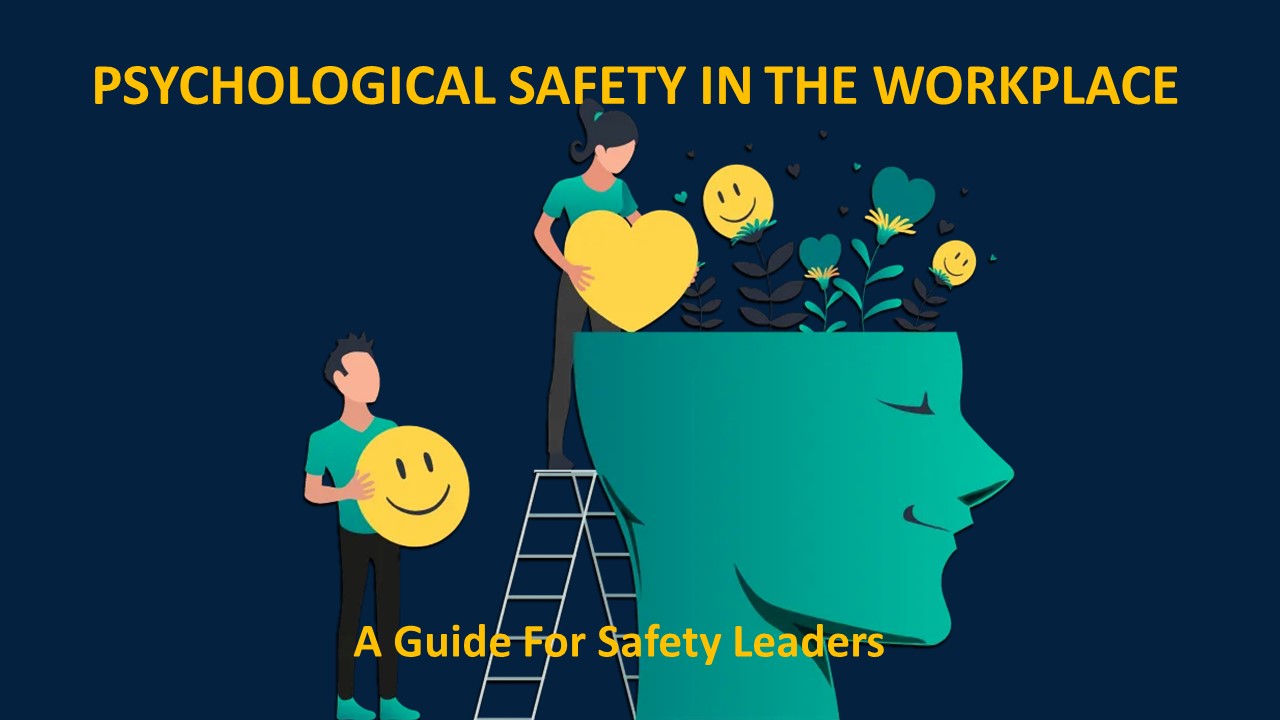Your cart is currently empty!

Psychological safety refers to the shared belief among team members that the team is safe for interpersonal risk-taking. It means feeling comfortable to express oneself without fear of negative consequences to self-image, status, or career. In teams with high psychological safety, members feel confident speaking up, asking questions, admitting mistakes, and presenting new ideas.
In the workplace, psychological safety is crucial for several reasons:
Innovation and Creativity: Employees are more likely to propose new ideas and innovations when they do not fear being shut down or ridiculed.
Learning and Growth: Mistakes are seen as learning opportunities rather than failures. This perspective encourages personal and professional development.
Engagement and Commitment: When employees feel safe, they are more likely to be engaged with their work and committed to their team and organization.
Performance and Productivity: Teams with high psychological safety tend to perform better, as members are not spending energy protecting themselves but are focused on achieving collective goals.
Error Reporting and Transparency: Psychological safety promotes the reporting of errors and transparency, which is crucial in identifying and solving problems early and effectively.
Tips For Encouraging Open Dialogue and Error Reporting
Lead by Example: Supervisors and leaders should model the behavior they want to see by sharing their own thoughts and vulnerabilities, admitting their mistakes, and reacting positively to challenging questions or feedback.
Foster an Environment of Mutual Respect: Encourage respect for all opinions and backgrounds. Ensure everyone feels their voice is valuable and that diversity of thought is a team asset.
Set the Stage: Be explicit about the importance of open dialogue and error reporting. Explain why it’s important and how it will benefit the team and the organization.
Provide Constructive Feedback: When errors occur, focus on the learning opportunity rather than assigning blame. Encourage a culture where feedback is constructive and focused on improvement, not punishment.
Ask Questions and Encourage Participation: Regularly solicit ideas and feedback from team members. Use inclusive language and ask open-ended questions to invite contribution from everyone.
Establish Clear Guidelines for Communication: Make sure everyone understands how they should report errors or share ideas and concerns. This could be through regular meetings, suggestion boxes, or direct conversations.
Celebrate Successes and Acknowledge Failures: Publicly celebrate successes, especially when they result from collective input and risk-taking. Equally, acknowledge and learn from failures without blaming.
Implement Regular Check-Ins: Conduct regular one-on-one or team check-ins to understand team members’ challenges and concerns. Use this as an opportunity to assess the psychological safety of the team and address any issues.
Train and Educate: Provide training and resources on effective communication, conflict resolution, and emotional intelligence to help employees navigate interpersonal risk more comfortably.
By actively promoting these practices, leaders can cultivate an environment where open dialogue and error reporting are normalized and encouraged, leading to a healthier, more innovative, and more productive workplace.
The Impact of Psychological Safety on Workplace Dynamics
In recent years, the concept of psychological safety has gained traction among business leaders and organizational psychologists as a crucial element of a productive, innovative, and engaged workforce. Defined as the shared belief that the team is safe for interpersonal risk-taking, psychological safety influences every aspect of team dynamics, from learning and development to performance metrics. This article explores the positive outcomes of psychological safety and the detrimental effects that arise from its absence.
Positive Outcomes of Psychological Safety
Increased Team Learning
Psychological safety fosters an environment where team members feel comfortable asking questions, seeking feedback, and admitting mistakes without fear of reprisal or ridicule. This open atmosphere encourages continuous learning and knowledge sharing, vital components for team development and adaptation in fast-paced or rapidly changing industries.
Enhanced Engagement
When employees feel psychologically safe, they are more likely to be fully engaged with their work. This means not just showing up but contributing actively, offering ideas, and putting in extra effort. Engaged employees are more invested in the outcome of their work and the success of their team, leading to higher overall performance and job satisfaction.
Improved Performance
Teams with high psychological safety show significantly better performance outcomes. Members are more likely to leverage their diverse skills and perspectives, leading to innovative solutions and better decision-making. Furthermore, the willingness to take calculated risks without the fear of negative consequences can lead to groundbreaking ideas and improvements.
Negative Outcomes of Lacking Psychological Safety
Pervasive Fear
A lack of psychological safety creates an environment of fear. Employees may fear ridicule, punishment, or damaging their career prospects, leading them to conform, stay silent, and avoid taking risks. This fear stifles not only individual growth but also the evolutionary potential of the team and organization.
Concealment of Mistakes
In an environment where mistakes are not accepted as part of learning, employees are more likely to hide their errors. This behavior can have serious consequences, including the escalation of small issues into significant problems, the perpetuation of incorrect practices, and missed opportunities for improvement and innovation.
Decreased Innovation and Engagement
Without the safety to express new ideas or question old ones, innovation stagnates. Employees are less likely to propose new approaches, leading to stagnation and a lack of competitive edge. Similarly, engagement plummets when employees do not feel valued or heard, resulting in lower productivity, higher absenteeism, and increased turnover.
Cultivating Psychological Safety
Leaders play a critical role in fostering psychological safety. This includes modeling vulnerability, encouraging open dialogue, reacting constructively to failures, and celebrating team achievements. It also involves setting clear expectations for respectful interaction and constructive feedback, ensuring everyone knows their voice is valued and important.
The impact of psychological safety on workplace dynamics cannot be overstated. It is the bedrock upon which productive, innovative, and engaged teams are built. By understanding and addressing the elements that contribute to psychological safety, organizations can unlock their full potential, leading to improved outcomes, employee well-being, and overall success.
